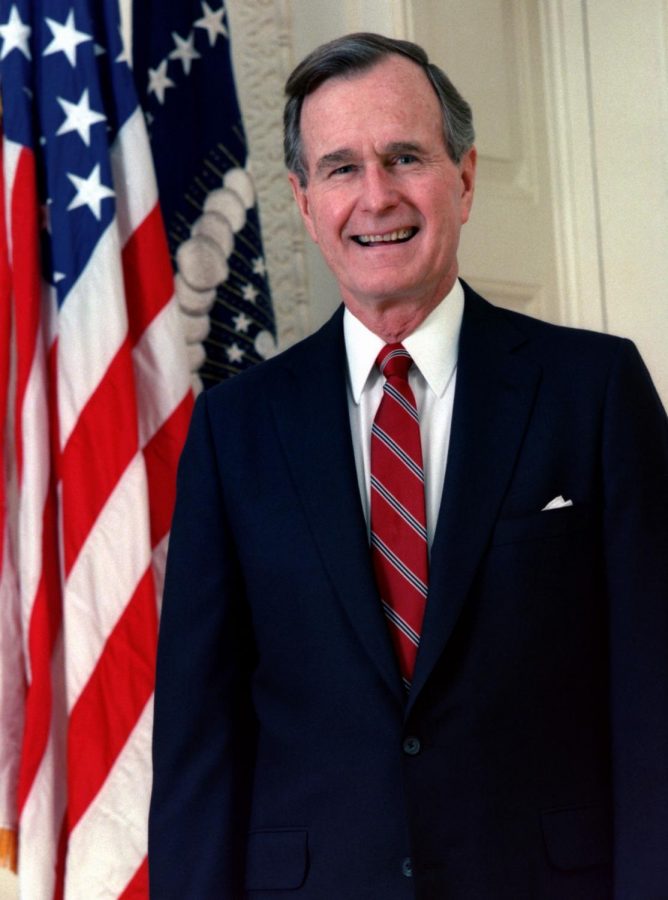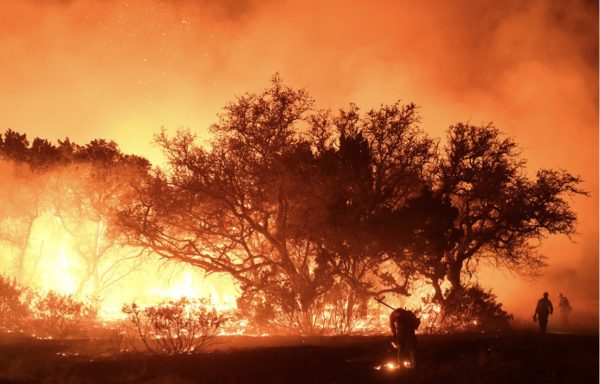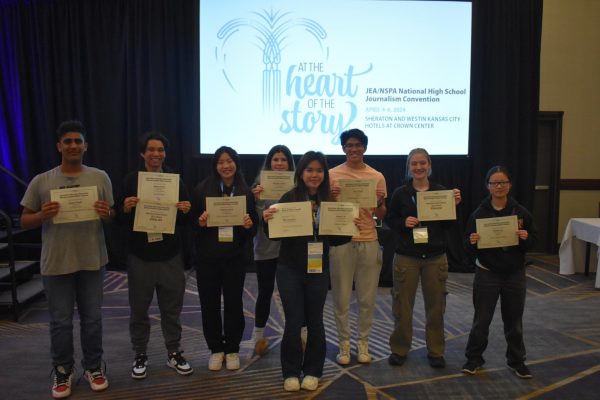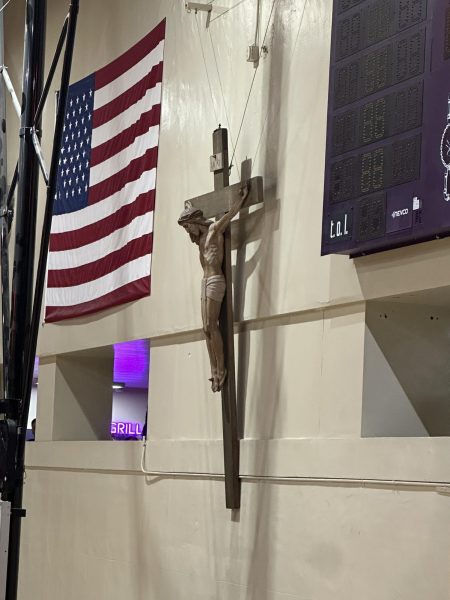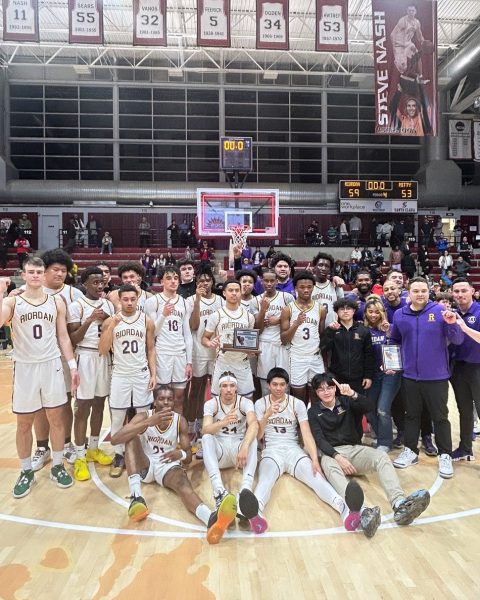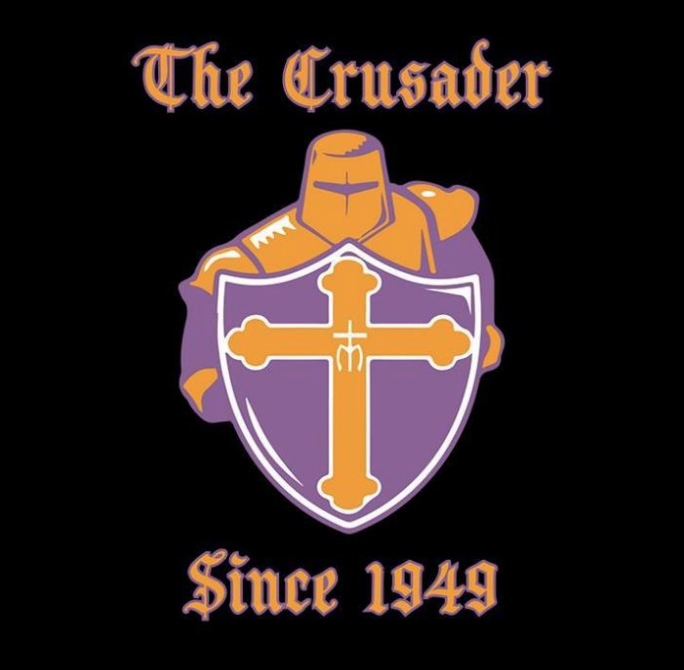Nation remembers George H.W. Bush
President George H.W. Bush, 1924-2018
December 15, 2018
From being shot down in the Pacific, to settling problems in Kuwait, George Herbert Walker Bush lived life to the fullest.
Late Friday Nov. 30, news surfaced that the 41st President of the United States had died after a long battle with Parkinson’s disease.
The New York Times reported Bush decided not to go to the hospital on his final day, and wanted to pass peacefully at his residence in Houston, Texas.
His final words to his son, President George Bush, who was the 43rd president of the United States, were, “I love you.”
During the eulogy for his father, he jokingly said his dad was great at everything, except eating veggies. The younger Bush managed to hold back his tears until the very end, when he was visibly shaken.
People wore colorful and funny socks, in honor of the fallen Bush, who enjoyed wearing eccentric socks during his battle with Parkinson’s because he could not use his voice.
The death of George H. W. Bush urges examination of his accomplishments in life. Born George Herbert Walker Bush in Massachusetts on June 12, 1924, he joined the United States Air Force during World War II. After narrowly evading capture by the Japanese, Bush returned home, promptly marrying Barbara Pierce in 1945 and then graduating from Yale in 1948.
After his graduation, Bush moved to Texas where he was eventually elected to the House of Representatives in 1966. After serving two terms, Bush served in a myriad of government positions, most notably the U.S. ambassador to the United Nations (1971-1973), and the Director of the CIA (1976-1977).
Such roles eventually earned him a position as the 43rd Vice President of the United States (1981-1989) under Ronald Reagan, a popular and charming politician from California.
Eventually, Bush’s turn to lead the nation came in 1989 with his election as the 41st President of the United States.
With Vice President Dan Quayle, Bush oversaw the breakup of the Soviet Union in 1991, unseated Panamanian dictator Manuel Noriega from power in 1989, and orchestrated a coalition of nations to stop the spread of Saddam Hussein’s Iraq in 1990.
Even with all these accomplishments, Bush still lost the election of 1992 to Democrat Bill Clinton. Such a career in government begs the question: What did he leave us? For many, Bush’s legacy boils down to bipartisanship. The effort that George H. W. Bush made to cross party lines, such as his work on the 1990 congressional budget, set a precedent for cooperation between major political parties.


